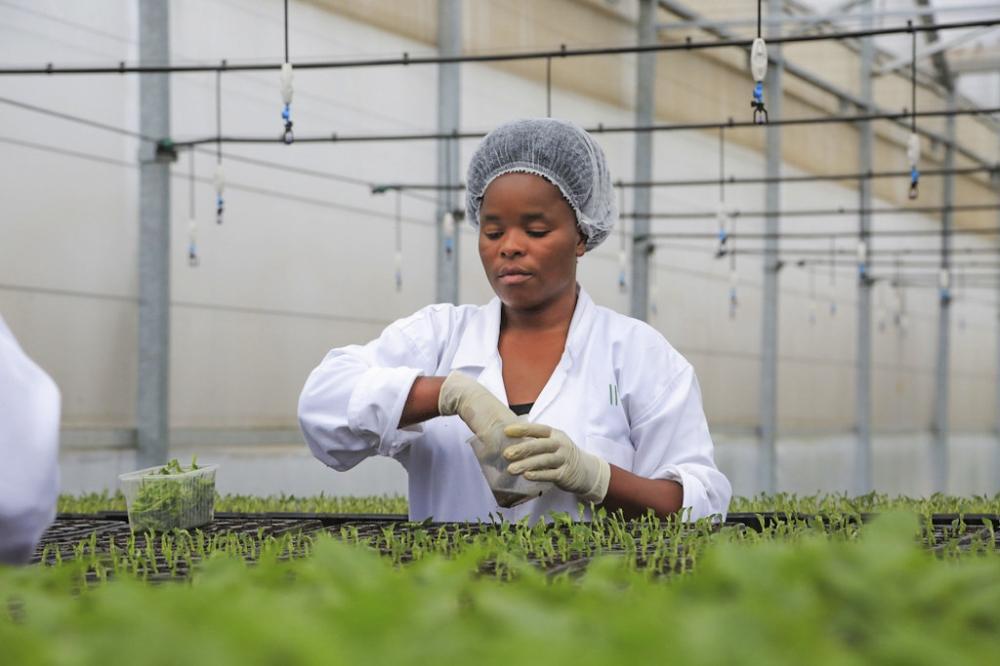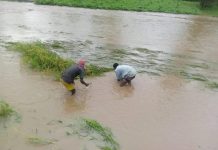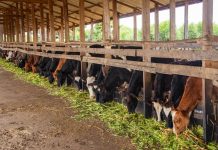Africa-Press – Rwanda. Rwanda plans to pilot the growing of three biotech crops, namely cassava, Irish potato and maize to evaluate their performance on farmers’ fields by the end of 2025 – ahead of potential nationwide adoption, according to Rwanda Agriculture and Animal Resources Development Board (RAB).
The crops were developed by scientists through agricultural biotechnology, specifically genetic modification, a process through which desirable traits such as insect- and disease-resistance and drought tolerance were introduced into them.
The move is in line with Rwanda’s agricultural biotechnology adoption plan to build farming resilience to challenges including pests and diseases as well as climate change effects such as drought, The New Times understands.
Athanase Nduwumuremyi, the coordinator of Open Forum on Agricultural Biotechnology in Africa (OFAB) Rwanda chapter, says the pilot will be conducted in selected farms in areas of the country where the crops – cassava, Irish potatoes and maize – are predominantly grown.
OFAB Rwanda chapter is run under Rwanda Agriculture and Animal Resources Development Board (RAB).
“We can plant anytime between September and December [2025],” Nduwumuremyi said.
Nduwumuremyi explained that this will be done once the regulatory body – Rwanda Environment Management Authority (REMA) – has granted environment release approval for conducting such activity on farmers’ fields.
Marie Therese Uzamukunda, an Irish potato farmer from Rubavu District, told The New Times that late blight is a serious disease to farmers, making them resort to intensive pesticide use in an attempt to control it.
She pointed out that the technology that would offer an effective remedy to it would be welcome. She added that the cost of pesticides needed to deal with the disease is high.
“If you don’t apply pesticides, you cannot get any yield,” she said of the loss the disease can inflict on a potato farmer.
According to RAB, confined field trials for two biotech crops – cassava and Irish potato – have already been conducted in various regions of the country.
Biotech cassava, which is resistant to cassava brown streak disease (locally known as kabore) and cassava mosaic disease, was tested in areas including Huye, Nyanza, and Bugesera districts. A biotech variety of Irish potato, resistant to late blight—a major threat to the staple crop—was trialed in Musanze.
Nduwumuremyi said that the performance of such crops is promising.
Canisius Kanangire, Executive Director of African Agricultural Technology Foundation (AATF), said that having crops that are resistant to insect diseases is very key to creating resilience in the farming sector.
He was speaking on June 10 during the African Conference on Agricultural Technologies (ACAT) that was held in Kigali last week.
He indicated that this is one of the “reasons why we have GMO [genetically modified crops] coming in and being presented as a notion to African countries, and that is why some have already adopted it.”
“We have a variety of maize GMO which is drought-tolerant, insect-resistant, and when we talk of insects, we talk of stem borer and fall armyworm, some of the very destructive insects. And that has been cultivated in South Africa for more than 10 years. Currently, we have it cultivated in Nigeria,” he said, adding that it is being adopted in some other countries.
“Soon, in Rwanda, I hope that we will have TELA maize… But also we have cassava and potato, which will be protected against many devastating diseases.”
A genetically modified maize variety, TELA maize was developed under a project addressing the problem of drought and destructive insects, specifically stem borer and fall armyworm that threaten maize production. The project is led by AATF.
Since TELA maize completed regulatory stages and is grown in some African countries, Nduwumuremyi said that it will not have to go through the confined field trial stage in Rwanda since that would be a waste of efforts.
On the implication of TELA maize, Nduwumuremyi said that it will address the reliance on applying pesticides against crop-damaging pests including fall armyworm.
“The money that Rwanda was investing in buying pesticides to [protect maize] will be saved, farmers who were spending a lot of effort in splaying pesticides will be relieved,” he said, appreciating its drought tolerance trait.
Nduwumuremye specified that farmers will not have to buy the biotech seeds to be grown under the pilot phase.
Also, he indicated that – in case they are rolled out for farming following the pilot phase success – they will be priced comparably to conventional seed varieties.
Safety assurance
Addressing concerns about genetically modified crops also known as biotech crops, the Minister of Agriculture and Animal Resources, Mark Cyubahiro Bagabe, reassured the public about the safety and long-standing use of genetic modification technology.
He observed that genetically modified foods have been part of the global food system for decades.
“We have consumed genetically modified crops for many years, for more than 30 years,” he said.
For More News And Analysis About Rwanda Follow Africa-Press






